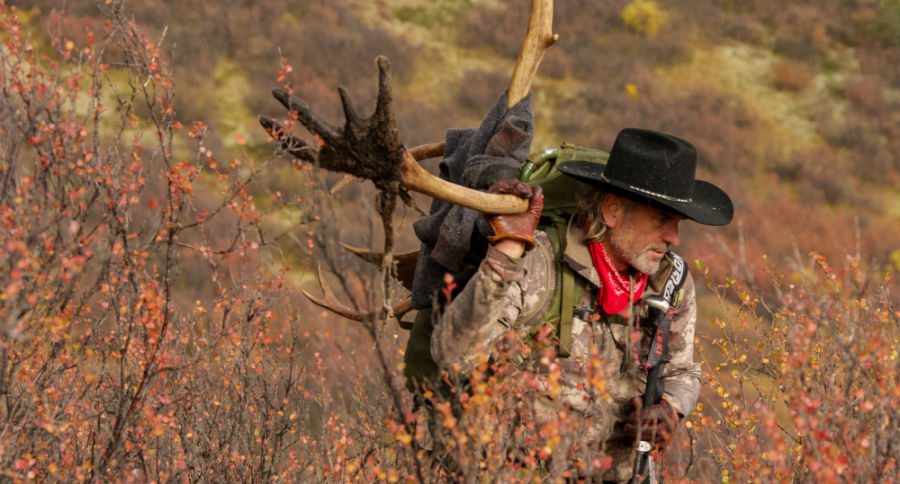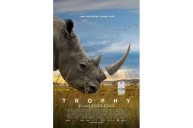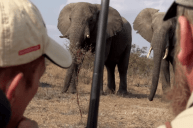Celebrated hunter and conservationist Jim Shockey spoke with us on a number of subjects, ranging from Trump's elephant trophy ban decision to meat hunting.
Recently Jim Shockey, the man Outdoor Life magazine referred to as "modern hunting's most influential celebrity," spoke with me over an hour-long, wide-ranging interview. I found Shockey to be soft-spoken though forceful and impressive in expressing his well-thought opinions.
He comes across as a man who has experienced more from life than most folks (which he obviously has) and who has spent a good deal of time reflecting on and considering those experiences.
Recently Outdoor Life featured Shockey on their cover and profiled him - again - in a nine-page article that ostensibly looked "at the life of the man who changed the way we think about hunting." For those who didn't know, he still produces and hosts Jim Shockey's Hunting Adventures and Jim Shockey's UNCHARTED on Outdoor Channel.
Wide Open Spaces followed up on the buzz created by that piece and tasked me with interviewing Shockey to see if we could cover any ground left untrodden by the Outdoor Life writers.
Shockey's publicist set up the call and soon I was speaking with Jim on a somewhat fuzzy connection from Wisconsin to Vancouver. Shockey politely thanked me for giving him something to do on a rainy Vancouver afternoon, and then we jumped right in.
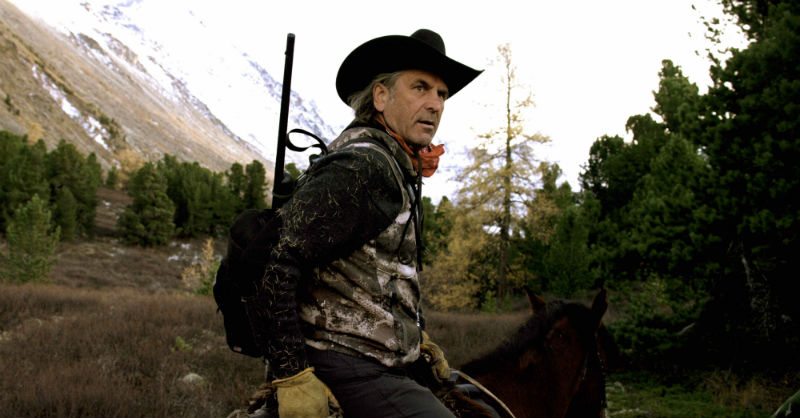
I began by asking him what he thought of the recent news that President Trump had planned to reverse the Obama administration's ban on the importation of African elephant trophies into the U.S., and then, later, Trump's decision to delay and rethink that reversal.
Shockey replied that it's tough to put yourself in the shoes of any president - past, current or future. These men, he said, are political creatures and politics is sometimes at odds with on-the-ground reality. He then delivered a passionate argument for legal, sustainable hunting in Africa as a means to protect elephants and other big game animals.
"The reality on the ground in Africa is that if you take away the value, the legal value, of these animals it does them no favors," he said. "It's called sustainable harvest. Hunting pays for many things that protect elephants: anti-poaching units for example. Hunting places a value, a monetary value on these animals. Without that value the sad reality is that there will be no control, and they will be killed illegally and indiscriminately."
"The elephants will be killed either way. The young, old, males, females, big, small...it doesn't matter. Poachers will kill whatever they can. And poachers prefer to kill the smaller, breeding females. Not the big bulls that may be past their breeding prime."
"With controlled, selective hunting, they can target specific animals, animals that are past their prime or are a danger to others in the herd or to humans. Poachers will kill everything, and as I said, they actually prefer the smaller, younger animals," Shockey said.
Really, I asked? Why is that?
"Oh yes. It's much easier to carry a ten or fifteen pound tusk than a fifty-plus pound tusk. It's easier to carry, easier to disperse, easier to smuggle. I've been to places where I've literally walked over elephant skull after elephant skull. The heads and tusks were chainsawed off. The ivory taken by poachers, indiscriminately. There's no control."
"I believe that the only hope these animals have is legal hunting. But people with good intentions are ignorant of the facts on the ground."
"They [politicians, the media, the public] have been sold a bill of goods by the animal rights people. So while it might be good for public opinion, but it's not good for the elephants. They have biologists over there - smart people - who study these things and who support sustainable hunting. But you can easily ban hunting. You can't ban poaching."
Shockey brought it back to the President's decision.
"If Trump wants to delay his decision and educate himself more on the situation, that's understandable. But Secretary Zinke is a common sense guy. He must be aware of the reality. I'm hoping that he will convince Trump to reverse the ban."
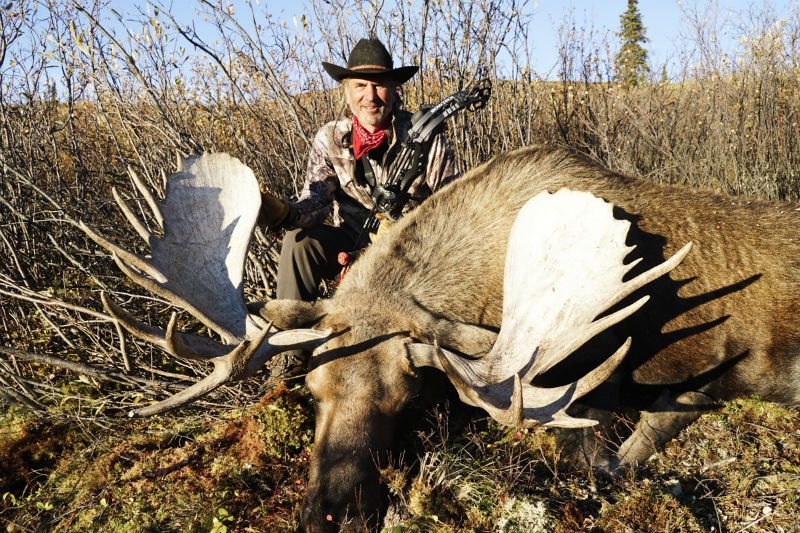
One of the common retorts we hear from the anti-hunting, animal rights crowd to the issue of banning trophy hunting, is something akin to "If hunters really cared about conservation then why don't they just donate money to it? Why do they need to bring back a hide, tusks, head or mount?"
I played devil's advocate and asked Shockey about this.
"Why should it matter to these people what happens to the tusks or other parts of the animal?" he replied. "What difference does it make? The animal is dead, so it makes absolutely no difference, from a biological perspective, what happens after that."
"What they are doing is they're trying to force their ideology onto someone else. They're trying to force someone else to conform to their view of the world. It has nothing to do with conservation."
"Why is that, their concern over what happens to the trophies, even a factor in the conversation? It should be about what's best for the survival of the elephants, for their future."
"The fact is that trophy hunters are selective hunters. We select specific animals, for a number of reasons, and remove that single animal from the herd, for the well-being of the herd as a whole. Why should it matter to anyone what happens to the tusks, or whatever, after that? There is nothing illegal about wanting a memento from a hunt. Hunters can't resell a trophy, so they aren't profiting from it. It's purely an emotional, ego-driven ideology that they're trying to advance."
"It's kind of a red herring. They're trying to make themselves appear more righteous or holier than thou by questioning the desire of hunters to want the tusks, horns or whatever. But for the hunter those parts represent a memory. The meat goes to the villagers. Every part of the animal is used. That should make them happy, that every art of the animal is utilized: the meat for the villagers, the tusks or hide for the hunter. Nothing is wasted."
"Again, it's not about conservation for these folks. It's about their ideology, and a lack of tolerance for people who don't subscribe to their ideology."
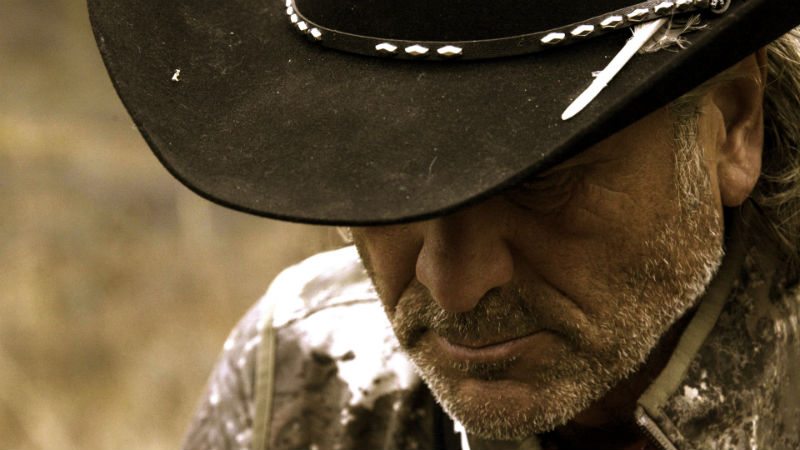
I replied to Shockey: You mentioned the term 'selective hunting,' and it was mentioned in the Outdoor Life article as well. Can you define that term a little bit more, and how realistic do you think it is that we can change the terminology from trophy hunting to selective hunting, given that most of the media seems to be anti-hunting and wants to perpetuate the negative connotations associated with trophy hunting?
"Trophy hunting has become a derogatory term," Shockey answered. "It wasn't always that way. I'm not sure when exactly it began, but probably sometime in the early 1960s. The meaning of the term began to be perverted. You also had these larger than life figures - like Hemmingway, Roosevelt - big figures who posed for pictures with their hands on the rhino or elephant, kind of like images of conquering heroes."
"And you had Bambi, the Disney movie that put hunters in a bad light. The pendulum began to swing the other way. Somewhere along the way, the image of the hunter began to become that of someone who cuts the head off an animal and leaves the rest. But that never happens. That's a fiction. Only poachers do that sort of thing. And hunters aren't poachers."
"Somewhere along the way, hunters and poachers became kind of the same in the public eye. But they are very different. It's like if you go to a bank and make a deposit, you're using the bank. And then after you a bank robber comes in and robs the bank. He's also using the bank. But you're both using it for very different reasons, one legally and ethically, the other illegally and unethically. The same is true of hunters, who utilize wild game and the outdoors legally and ethically - and whose patronage keeps the bank open and viable, so to speak - and poachers, who steal animals from the outdoors and cause a great deal of damage."
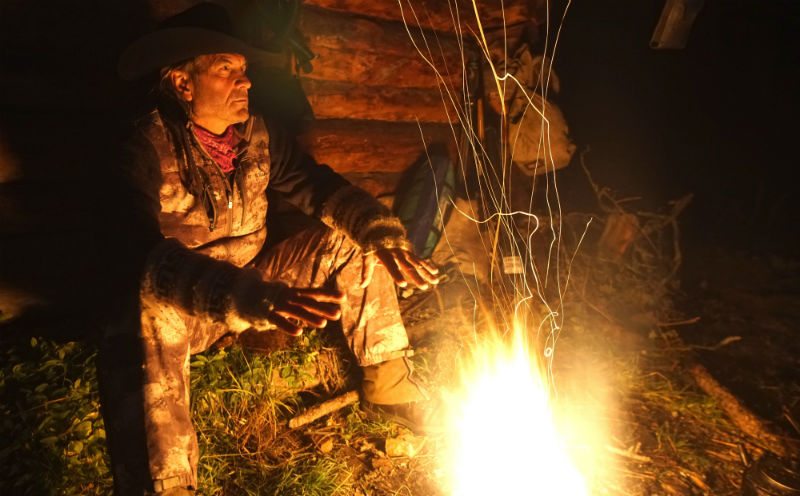
"So do I think that we can change the terminology? Yes, I believe we can. At least we can offer a different narrative. As hunters, every time we talk to the media we can reinforce the concept of selective hunting. Because we are all selective hunters. We select animals for any number of reasons. They may be older, more elusive animals, fatter animals...a fat cow moose is a trophy to some, that's the animal that they have made a decision to take, because it's more tender and fatter and isn't filled with testosterone from the rut. Maybe you choose an older bull or buck with large antlers because it's a more elusive goal."
"Part of hunting is, and I'm hesitant to say that hunting is spiritual, but it is a spiritual endeavor. Often we select our quarry based on the experience connected to it. We want to stay out longer, experience more in the wild outdoors. We want to shiver in the cold, feel the discomfort, struggle against the elements. That's all part of it. So we select animals that will allow us to do that. There is something spiritual about that, about sleeping under the stars, about trekking up mountains, about exerting yourself in nature. We're also selective because we want to prolong that experience, and feed ourselves from the fruits of that labor too."
"Maybe we have no hope of eliminating the term trophy hunting, but we can push forward selective hunting. We're all selective hunters. You're a selective hunter, David. I'm a selective hunter."
Stay tuned for part two of this exclusive interview with Jim Shockey. In the meantime, you can follow him on Facebook, Twitter and Instagram.
Like what you see here? You can read more great articles by David Smith at his facebook page, Stumpjack Outdoors.
NEXT: Shane Mahoney Exclusive Interview, Part V: Selling Wild Game and Creating a New Narrative
